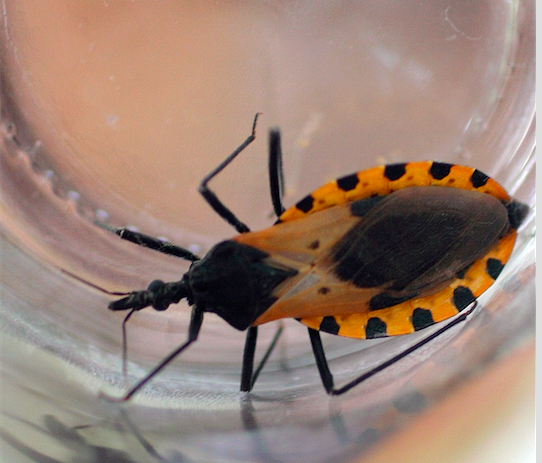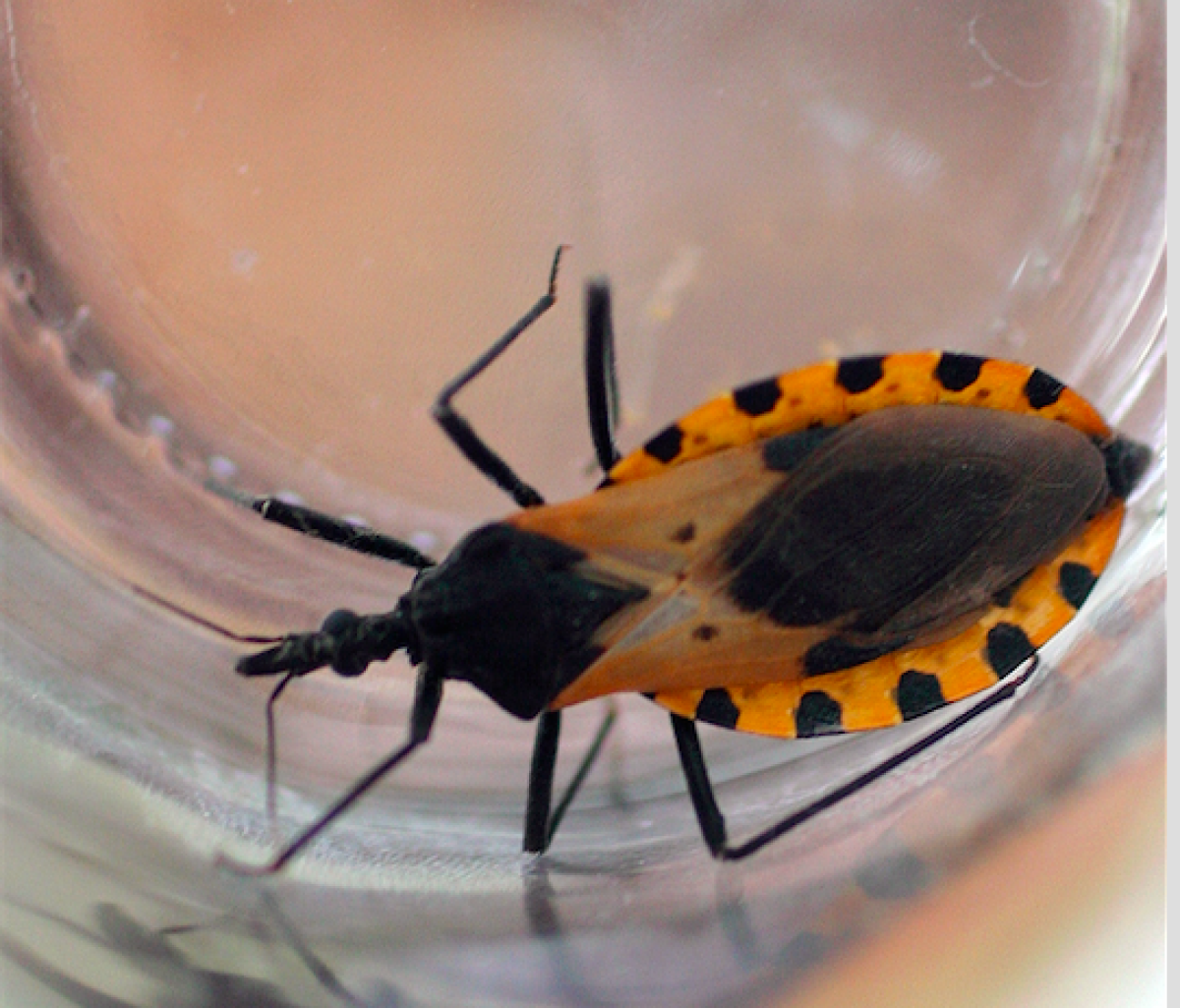
A warning has been issued to the U.S. about Chagas disease, an infection caused by a parasite, according to the American Heart Association.
The warning, which was issued on Monday by the American Heart Association, describes Chagas disease as an infection that is caused by a parasite called Trypanosoma cruzi (T cruzi). The disease is usually spread by bugs called triatomine bugs, which carry the parasite, and is mostly found in Central and South America.
The triatomine bugs, also known as the "kissing" bugs, are nocturnal and feed off the blood from mammals, including humans. People can become infected by the nocturnal bug when its feces enter the skin through the bite site, which is typically in or near the eye, according to the association.

The association is warning doctors outside of Central and South America that the disease is becoming more common in places like the U.S. There are an estimated 300,000 cases in the U.S. and 42,000 cases in Spain, according to the association. There are other cases found in Italy, France, Switzerland, Australia, Japan, and the United Kingdom, according to the warning.
"This statement aims to increase global awareness among physicians who manage patients with Chagas disease outside of traditionally endemic environments," said Maria Carmo Pereira Nunes, M.D., Ph.D., co-chair of the committee from the American Heart Association said in the warning.
The Center for Disease Control and Prevention (CDC) said those who contract the disease will go through two phases of symptoms. The first wave of symptoms includes fever, fatigue, body aches, headache, and rash, according to the CDC. Swollen eyelids or bite marks near the face where the bug bite is also an indicator of Chagas disease, according to the CDC. Other signs of Chagas disease that can be found by a doctor include swollen glands, mild enlargement of the spleen or liver, and swelling in the area where the parasite entered the body, the CDC states.
The second phase, known as the chronic phase, symptoms can include cardiac problems such as enlarged heart, heart failure, altered heart rate or rhythm and cardiac arrest, according to the CDC. The center also states that the disease can cause intestinal complications such as enlarged esophagus or colon.
There have been eleven 11 different species of triatomine bugs have been found in the southern United States, according to the CDC. Triatomine bugs are rarely in any indoor areas or homes in the U.S., but to prevent infestation inside the home, the CDC recommends to seal cracks and around windows, walls, roofs and doors, remove wood or rock piles near homes, use screen doors and windows, have pets sleep indoors at night, and keep outdoor pet resting areas clean.
Uncommon Knowledge
Newsweek is committed to challenging conventional wisdom and finding connections in the search for common ground.
Newsweek is committed to challenging conventional wisdom and finding connections in the search for common ground.
About the writer
Maria Perez is a breaking news reporter for Newsweek. She has an M.A in Urban Reporting from the CUNY Graduate School ... Read more
To read how Newsweek uses AI as a newsroom tool, Click here.








